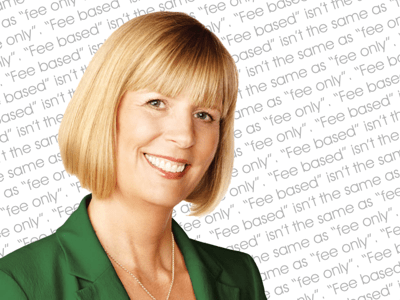
Liz Weston at MSN Money has a great article this weekend entitled “Can financial advisers be trusted“. She included a pop quiz about what your financial adviser does when the markets act like they did last week. Here is what she said:
When the markets go nuts, your financial adviser:
A. Reassures you that the world isn’t coming to an end and encourages you to stick to your carefully crafted investment plan.
B. Tries to sell you an investment product or service to “fix” your concerns.
C. Does whatever you say — buy in a frenzy, sell in a downturn — without comment or question.
D. Maintains radio silence. You never hear a peep.
If I ruled the world, everyone with a financial adviser would answer “A.” Someone entrusted with advising you about your money should take the time to get to know you. This adviser should work out an investment plan that makes sense with your goals and risk tolerance. Then he or she should remind you of that plan when you’re tempted to make rash decisions.
In yesterday’s column, “How to Maximize Long-Term Returns” I wrote:
Simply put, investors did not experience the full return of the fund because they moved into the fund after it went up and moved out after it went down. By trying to chase returns, their portfolio underperformed the very funds they were invested in by about 1.5%. So if investment advisors simply dissuade clients from chasing returns and moving in and out of what might otherwise be good funds, they may earn their fee and then some.
This is just one benefit of a disciplined approach to investing. Financial advisors perform a service when they dissuade people from impulsive decisions that feel right emotionally but statistically are a bad idea.
Liz Weston continued in her article to remind readers:
Here’s one of the big problems: The vast majority of people presenting themselves as financial advisers don’t have to put your interests first. They can recommend you buy a financial product or use an investment strategy because it makes them more money than the alternatives.
These advisers have only to prove, if questioned by regulators, that they didn’t suggest you invest in something “unsuitable.”
Read Liz Weston’s complete article “Can financial advisers be trusted?” to learn more or just take her advice: “If you want referrals to fee-only financial advisers — planners who don’t take commissions but who are compensated only by the fees you pay — you can get referrals from NAPFA.”